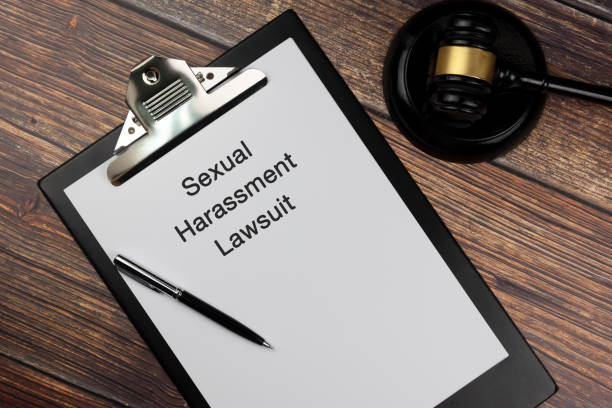As defined under federal and state legislation, sexual harassment has three essential elements:
- Unwelcome behaviour
- That is of a sexual nature
- And that a reasonable person in the circumstances would have anticipated to cause offense, humiliation or intimidation to the individual who was sexually harassed.
But is it still considered sexual harassment if you enjoyed it?
The relevant consideration is whether you like or enjoy the conduct constituting sexual harassment, which still means that the conduct is ‘unwelcome’. This is a subjective test, looking at how the conduct was perceived and experienced. Unwelcome conduct is defined as conduct that was not solicited or invited, and which is considered to be undesirable or offensive.[1]
This creates a distinction between consensual engagement in sexual acts and acts of sexual harassment. For example, if an employee were to willingly and consensually engage in the sending of sexually explicit text messages between colleagues, then such conduct would undermine the element of unwelcome conduct.[2]

Mutual Attraction and Consensual Relationships
Allegations of sexual harassment are not assessed in a vacuum, but in the context of the friendship and the relationship shared between the parties.[3] Sexual interactions or flirtation that is engaged in, on the basis of mutual attraction, friendship and consent, would not constitute sexual harassment because the behaviour is not unwelcome. However, the limits of these friendships or relationships are also taken into account when determining whether certain conduct constitutes sexual harassment.
Where the complaint is that someone tried to hug you and you repelled this hug, then this may not amount to sexual harassment if you have a history of actively participating in out-of-hours conversations with them, frequently hugged them in the course of friendship and have invited them to your house.[4] In contrast to this, if your friend is making repeated requests for sex, inappropriately touching you or requesting you to view pornography in the workplace, then the friendship would not preclude a finding of sexual harassment.[5]
As you can see, a finding of sexual harassment is dependent on the nature of the relationship between the parties and the relevant conduct in question. Equally as important is the manner in which the sexual conduct is carried out. Even if the parties are friends, an individual who uses their position of power or authority to elicit sexual favors from another, would still be sexually harassing them.
Is it unwelcome if I liked it?
Another distinction needs to be drawn between conduct that is welcomed, and conduct that is unwelcomed but enjoyable. Importantly to note, just because a sexual encounter is enjoyed in the moment, this does not necessitate the conclusion that it was also welcomed. It is entirely possible for an individual to solicit sexual acts from another, using their position of power or authority, and a reasonable person in the circumstances would anticipate the conduct to be offensive, humiliating and intimidating.
Even if the person who was harassed enjoyed the sexual act in the moment, they did not solicit or invite that conduct. In fact, the sexual acts were perpetrated without their enthusiastic consent, which may still point towards a finding of sexual harassment.[6]
With respect to sexual comments, Deputy President McKenzie in Styles v Murray Meats Pty Ltd stated (at [14]-[16]):
“The conduct must be, and seen to be, unwelcome to the recipient. A comment would not be unwelcome if the recipient by conduct or comment condones it. For example, by replying with comments of a similar nature or by otherwise showing in actions or words that the conduct is found to be amusing”.[7]
D.P. Mckenzie
The test is much narrower with regards to sexual comments as the enjoyment of sexual acts may be reduced to involuntary bodily responses and reactions. However, sexualised comments would be deemed as unwelcome if the recipient does not find them amusing or avoids responding to them. If enjoyment could be seen as a spectrum from mere acceptance to active involvement, Deputy President McKenzie’s decision may be construed to suggest that anything beyond ambivalence could lead to a finding of the sexual conduct being welcome.
Is it unwelcome if I did not say or do anything?
There is a difference between welcoming conduct of a sexual nature, and being merely ambivalent towards it. Remaining silent, enduring the conduct or not openly objecting would all constitute demonstrating ambivalence towards the sexual harassment. Such responses may still display that the employee is not welcoming the sexual conduct. In fact, in Aldridge v Booth,[8] the Australian Human Rights and Equal Opportunity Commission found that acts which are ‘largely unwelcome’ would still be sufficient to establish sexual harassment.
Simply because an employee is enduring the sexual conduct to avoid confrontation or because they were too afraid to say something, would not preclude a finding of sexual harassment. This is usually the case where there are power imbalances as an employee may not wish to speak up against their manager out of fear of risking their employment, and they may feel as though they have no choice but to stay silent. There may be multiple reasons why someone may not wish to confront the perpetrator, but just because they were ambivalent to the conduct does not mean that they welcomed it.
Similarly, failing to flee the situation or failing to strongly rejecting the harassment (i.e. pushing the perpetrator away) would not render the conduct to be welcome. It is not appropriate to criticise the individual who has been sexually harassed for the manner in which they attempted to handle the harassment.[9] Particularly where the perpetrator is in a position of authority or superiority, it is comprehendible as to why the employee would not wish to upset them and it would be an unfair criticism to say that they could have handled the situation better, stormed out of the room or escaped the perpetrator earlier.[10]
What if they say they “didn’t know”?
The test of whether sexual conduct was unwelcome, is assessed in a subjective manner, from the perspective of the individual who was harassed. However, stating that the perpetrator of the sexual harassment did not know their conduct was unlawful, would not be an adequate defence. As stated by Deputy President McKenzie in Kaldawi v Smiley (at [47]):
“I’m not satisfied that the phrase [unwelcome conduct] so clearly requires some knowledge of the unwelcomeness of the conduct by the person who engages in it”.[11]
Therefore, even if the respondent claims that they did not know their sexual advances were unwelcome, the element of unwelcomeness is judged from the perspective of the subject or recipient of these advances. If the sexual advances were subjectively unwelcome, then this element of sexual harassment can be established.
The respondent may also aim to argue that they did not know the conduct would be offensive or intimidating to the complainant. However, this is also an unsatisfactory defence as anticipation of the conduct offending, humiliating or intimidating an individual, is judged by an objective standard. The relevant question is whether a reasonable person, in all the circumstances, would have considered the conduct to be capable of offending, humiliating or intimidating the individual who was sexually harassed.
The subjective intent or knowledge of the perpetrator is therefore irrelevant to this finding. This position was noted in Styles v Murray Meats Pty Ltd (at [16]): “The test of whether the comment could reasonably be anticipated to offend, humiliate or intimidate, is not to be judged from the subjective point of view of either the actor, or the recipient”.

So what do I do?
The first question to ask yourself is whether the conduct in question is conduct of a sexual nature. If it is, then the second question is whether it was unwelcome. Remember, even if you enjoyed it or you did not say anything about it, this does not necessarily preclude a finding of sexual harassment. The final question is whether the conduct, when assessed objectively would be capable of offending, humiliating or intimidating you. This will require an assessment of the conduct itself, from the perspective of a reasonable person.
If you are confused about whether certain conduct you have experienced constitutes sexual harassment, you can contact us for an obligation-free consultation with one of our workplace representatives on 1800 333 666. We are A Whole New Approach, we are not sexual harassment, or harassment lawyers, but highly skilled and experienced workplace advisors specializing in discrimination and sexual harassment claims since 2004. We represent employees in the Fair work Commission, unfair dismissals and general protection claims, stop sexual harassment order.
[1] Aldridge v. Booth [1988] FCA 170.
[2] Howard v Geradin Pty Ltd T/A Harvard Securities [2004] VCAT 1518, [50] (Deputy President Davis).
[3] GLS v PLP [2013] VCAT 221.
[4] Hardy v Kelly (1991) EOC 92.
[5] GLS v PLP [2013] VCAT 221.
[6] See Coy M, et al. 2016, ‘From No means No to an Enthusiastic Yes: Changing the Discourse on Sexual Consent through Sex and Relationship Education’, in Global Perspectives and Key Debates in Sex and Relationships Education: Addressing issues of Gender, Sexuality, Plurality and Power, Palgrave Pivot, London, pp. 84-99.
[7] [2005] VCAT 2142.
[8] [1988] FCA 170.
[9] GLS v PLP [2013] VCAT 221.
[10] Ibid [230] (Justice Garde).
[11] [2002] VCAT 1754.













